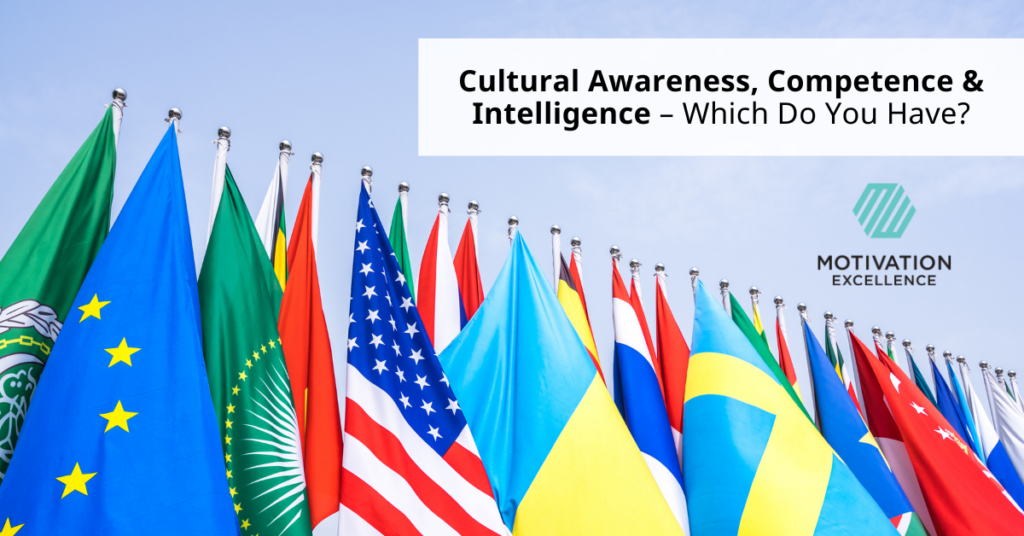When we speak about culture in a business setting, we are often referring to the general vibe of the company. It may be comprised of its goals, mission and vision statements, employee interactions and added non-cash company benefits, like charity days, and reward and recognition programs.
Cultural awareness, however, is a different topic altogether. Having cultural awareness, or going deeper to cultural competency or intelligence, adds to the company culture, but it’s an independent, and important, key to a successful business. The website Seek details many ways in which recognizing and utilizing cultural differences can help a company. These include:
- Striving for nuanced but clear communication
- Refining ideas around conflict resolution
- Boosting productivity and innovation with new perspectives
- Understanding when/why employees feel included and respected
If your business deals internationally, having a strong grip on cultural details is obviously extremely important. As with most things, there are levels of understanding we can strive to achieve. We will lay them out for you to gauge where you land.
Awareness – The Foot in the Door
According to EasyLlama.com culture is the collective term used to identify the customs, social behavior, and ideas of a particular people or society. Think of culture like a recipe with ingredients such as:
- Traditions
- Language
- Nationality
- Beliefs
- Community connections
- Personal identity
- Food
- Arts
Being culturally aware is the base level of understanding. You recognize your coworker or neighbor grew up with a different background that influences their current lifestyle, choices and actions. Furthermore, Georgetown University points out that cultural awareness also reflects how you react to people of other cultures when they are very different from your own.
Competency – Joining the Conversation
Like awareness, cultural competency refers to the recognition of and reaction to different cultures within your sphere and then adds in the ability to function and interact with people of different backgrounds. Diversity Atlas states that to be competent you need to be aware of your own assumptions as you interact with people. Companies that are considered culturally competent have policies that consider culture-based differences in every aspect of work. For us at Motivation Excellence, we work with people all over the world as part of our incentive group travel programs. Knowing the nuances of how people work in Thailand, versus Greece, versus Hawaii helps us pave the way for a more enjoyable travel experience for our clients.
Being culturally competent can be displayed right in the office too. Do you think about what kinds of food people don’t, won’t or can’t eat because of their upbringing, dietary needs or personal preferences? Does your office recognize holidays other than the national holidays celebrated in the United States? Your very own people can be the best source of suggestions and information when it comes to highlighting various cultures in the office – just ask around!
Intelligence – Being Part of the Solution
Shown in short as CQ, cultural intelligence is especially important for companies working in a global atmosphere. Diversity Atlas says companies with CQ are sensitive to different ways of thinking and problem solving which improves work innovation. CQ requires flexibility and adaptability and relies heavily on emotional and social intelligence.
CQ is particularly important for governments, public sector businesses and non-profit organizations. It’s a great skill set for managers to have in any business that is hiring from a diverse talent pool. According to PennState Extension, having high CQ gives leaders the ability to interpret someone’s behavior in the same way that a person’s friends or family would. In return, if an employee feels like their manager understands and respects their culture, they’re more likely to trust the manager and the company. That contentment leads to lower turnover and higher productivity.
If you’re interested in learning more about developing CQ, MindTools.com delves into the four traits high CQ people exhibit:
- A drive to learn about other cultures
- Knowledge of how cultures influence behaviors
- Strategies to respond to cultural differences
- Acting in culturally sensitive ways
Level Up
No matter where you are on the stairs of cultural understanding, there’s always room to move up. According to the UN, three-quarters of the world’s major conflicts include a cultural dimension. You may not be solving an equation for world peace in your own life, but having a better grasp of how backgrounds influence thought processes and reactions is a great skill to nurture.
Every year, May 21st is the World Day for Cultural Diversity, also known as Diversity Day. You can click on the link to learn more about it and how you can celebrate it in your own home or workplace. Our world cultures are becoming increasingly intertwined. Those who are interested in learning from and interacting with people from different backgrounds will always be the ones moving forward faster. It’s not always easy, but the most rewarding things rarely are.




